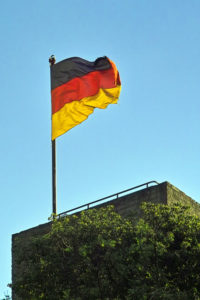
Germany to raise bioethanol blending in gasoline
The German cabinet will vote on Wednesday on a proposal to raise the maximum level of bioethanol allowed in blended gasoline to 10 percent in January 2011 from 5 percent now, the country’s environment ministry said on Monday.
The move is part of Germany’s efforts to meet European Union plans to raise biofuel use to protect the environment, it said.
Analysts said the increase would help boost demand for grain next year, but there also would be tough competition from sugar and imported bioethanol.
“Currently sugar is looking most competitive for bioethanol output after the sharp rise in grain prices this year,” one analyst said. “But overall there is likely to be increased demand for both grains and sugar, so more blending will be positive news for producers.”
Introduction of fuels with higher bioethanol content has in the past been controversial because of fears of engine damage to older cars.
The ministry said about 90 percent of German automobiles would be capable of using fuels with the higher blend level, which will be clearly labeled at petrol stations.
Germany’s large bioethanol industry, which mostly uses grain and sugar as feedstock, has been hoping for the change for some time.
Grains futures surged to two-year highs in early August, almost doubling from June lows as a drought devastated Russia’s harvest and the country announced a grain export ban.
Germany consumed about 1.2 million tonnes of grain for bioethanol output in 2009, the German state alcohol production supervision agency BMB said. This compared with a German 2009 grain crop of 43.7 million tonnes.
[ad]
Some 2.27 million tonnes of sugar beet went to German bioethanol output in 2009 against a sugar beet crop of 25.9 million tonnes last season.
“The news is good for the farming sector, but competition to supply the new feedstock will be hot,” another analyst said. “The general high level of grain prices and large volume of sugar which will be available may give sugar the edge in coming months.”
Germany is likely to produce 3.65 million tonnes of refined sugar in the current 2010/11 season, which would be about 1 million tonnes over the country’s European Union sugar production quota of 2.66 million tonnes, sugar industry association WVZ forecasts.
The EU restricts output of some subsidized crops such as sugar with quotas. Sugar output over the EU quota cannot be sold as food but may be sold for non-food industrial use or exported with special permission.
“Such a large volume of sugar can only really be sold for bioethanol use or exported,” one trader said. “There is not really industrial demand on that scale.”
“The rise in blending levels would be good news for sugar farmers and may lead to an increase in sugar plantings in the medium term,” the trader added.
Source Reuters

